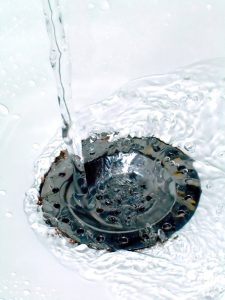 We have a number of rural residents in our neck of the woods: people who live off of any civic grids and rely on wells or similar sources for their water supply. It’s an absolute necessity, but it also means that you need to take care of its treatment and cleanliness yourself in many cases. Not to worry. With a trained plumber on your side, you can identify any potential troubles with your water supply and install one or more devices that can keep it safer and cleaner for your family. We’ve provided a brief list of some of the more popular options below.
We have a number of rural residents in our neck of the woods: people who live off of any civic grids and rely on wells or similar sources for their water supply. It’s an absolute necessity, but it also means that you need to take care of its treatment and cleanliness yourself in many cases. Not to worry. With a trained plumber on your side, you can identify any potential troubles with your water supply and install one or more devices that can keep it safer and cleaner for your family. We’ve provided a brief list of some of the more popular options below.
Start With Testing
It pays to have a plumber test your water to check for any problems, not just one or twice, but on a regular basis. That will alert you to any potential threats and give you a sense of what you might need to worry about. It also allows you to discuss your options with your plumber and settle upon the right filtration system — or combination of systems — for your home.
General Filtration Systems
General filtration systems are designed to address potential contaminants on a wide basis. You likely already have a filtration system in your refrigerator and perhaps one in your kitchen sink as well. A whole-house water filtration system provides comprehensive coverage outside of those two outlets: covering bathroom sinks, showers and every plumbing component in your home. In can include reverse osmosis systems and others systems designed specifically to address drinking water.
UV Filters
UV stands for ultraviolet, a spectrum of light that exists beyond our ability to see, but which we feel every time we step out into the sunlight. (It’s what causes our skin to tan and burn in the sun.) It’s perfectly harmless at lower levels, at least for humans and pets. But for germs and bacteria, one touch proves lethal: either killing them outright or preventing them from replicating.
A UV water filter shines a UV light across the apex of your water line, screening the water as it moves into your home. That kills any bacteria or germs and makes sure your drinking water is safe. It has no moving parts so it rarely requires repairs, and maintenance is usually limited to periodically replacing the bulb when it burns out.
Water Softeners
Water softening filters are designed to deal with hard water: water with a high mineral content (usually calcium or magnesium). Hard water isn’t dangerous — we can usually ingest those minerals safely — but it causes our drinking water to taste funny and can damage clothing laundered with it, as well as leaving a crusty white build-up on faucets sand similar outlets. Water softening systems eliminate all of that, helping your water taste better and prevent wear and tear on important household items.
If you rely on well water or similar sources here in Plano, TX and think a water filtration system may be a good fit for your household, call on Hutchins Plumbing & Air Conditioning today!









